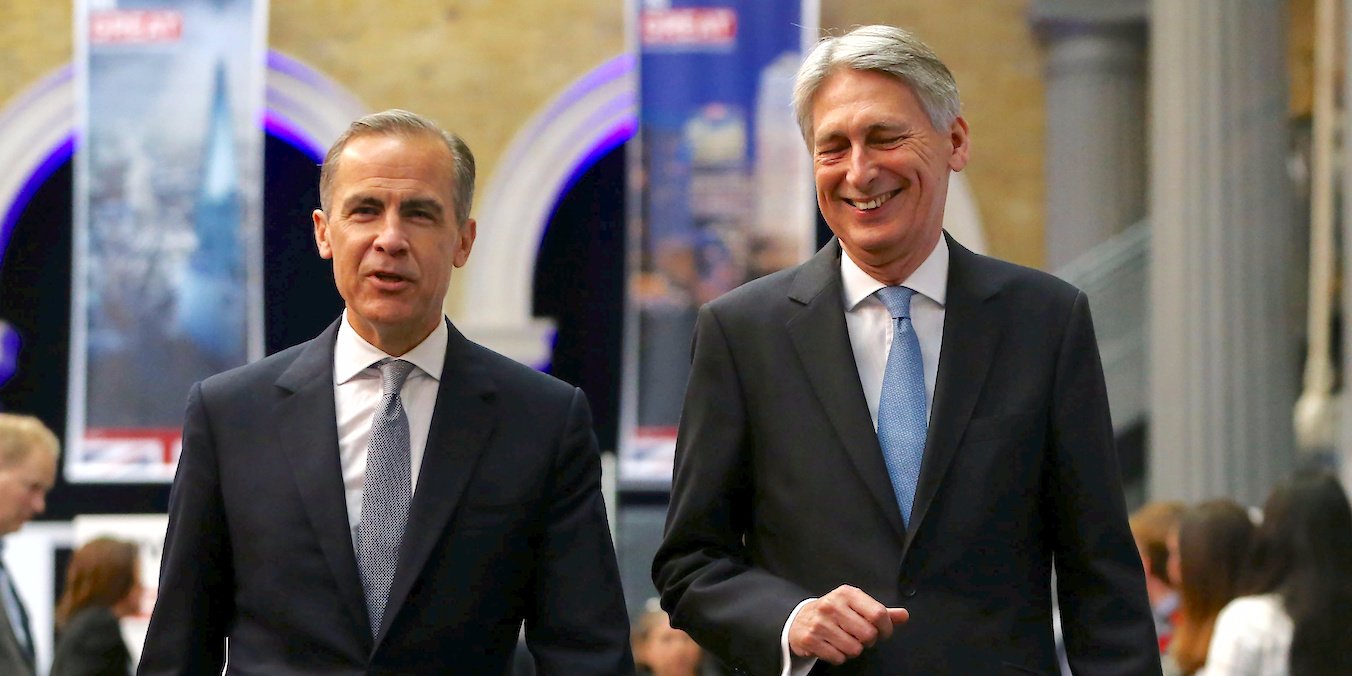
- Dutch bank ING sees Brexit uncertainties preventing a Bank of England rate hike.
- Lack of clarity over what kind of deal, if any, Britain and the EU will strike will prevent rates from rising.
- Markets expect the central bank to increase rates in November.
LONDON — The growing chance that the UK crashes out of the European Union without a trade deal may stop the Bank of England from hiking interest rates in the near future, according to research from Dutch bank ING.
Market expectations are that the bank will almost certainly raise its base interest from 0.25% to 0.5% when the key Monetary Policy Committee meets at the beginning of November, thanks largely to surging inflation in the UK since the vote to leave the EU last summer.
The policy dilemma facing Britain’s central bank when it comes to rates, is that it must balance surging inflation with the slowdown in the economy, dwindling consumer spending and declining inward investment.
With inflation hitting 3% last month, it seems more likely than ever before that the bank will see the see-saw tilting toward the inflation side of the argument, prompting a rate hike.
ING economist James Smith, however, said that the uncertainty over whether or not an agreement can be reached over a transitional arrangement to smooth Britain’s path out of the bloc, will put the bank’s policymakers off any rate hike in the coming months.
“Given the number of open questions, not just on the transition, but on various Brexit issues, the Bank is likely to proceed cautiously until the picture becomes clearer,” Smith wrote in a blog on ING’s “Think” economic research portal.
“At this stage, we feel that it is more likely than not that the Bank decides to stay hold through next year.”
Throughout 2017 the Bank of England has made clear in its communications that it is basing its economic scenarios on a situation whereby Brexit negotiations proceed smoothly.
The reality so far has been a little different. Last week the EU’s chief Brexit negotiator Michel Barnier said that talks between Britain and the bloc had reached a “deadlock.”
Both parties are struggling to agree on a financial settlement tied to Britain’s exit from the bloc, with the EU demanding a far greater sum than Britain is willing to pay at this point. That has led to something of an impasse in negotiations, with both sides saying that the ball is in the other’s court.
Prime Minister Theresa May has also repeatedly stressed her belief that “no deal is better than a bad deal” — leaving the door wide open for Britain to drop out of the EU without any formal arrangement in place. This is a scenario that is unlikely to be considered “smooth” by the BoE.
This week the Bank of England’s two newest policymakers — Silvana Tenreyro and Sir Dave Ramsden — made clear in separate appearances before the House of Commons Treasury Select Committee that they do not yet believe that the time has come to increase interest rates.













